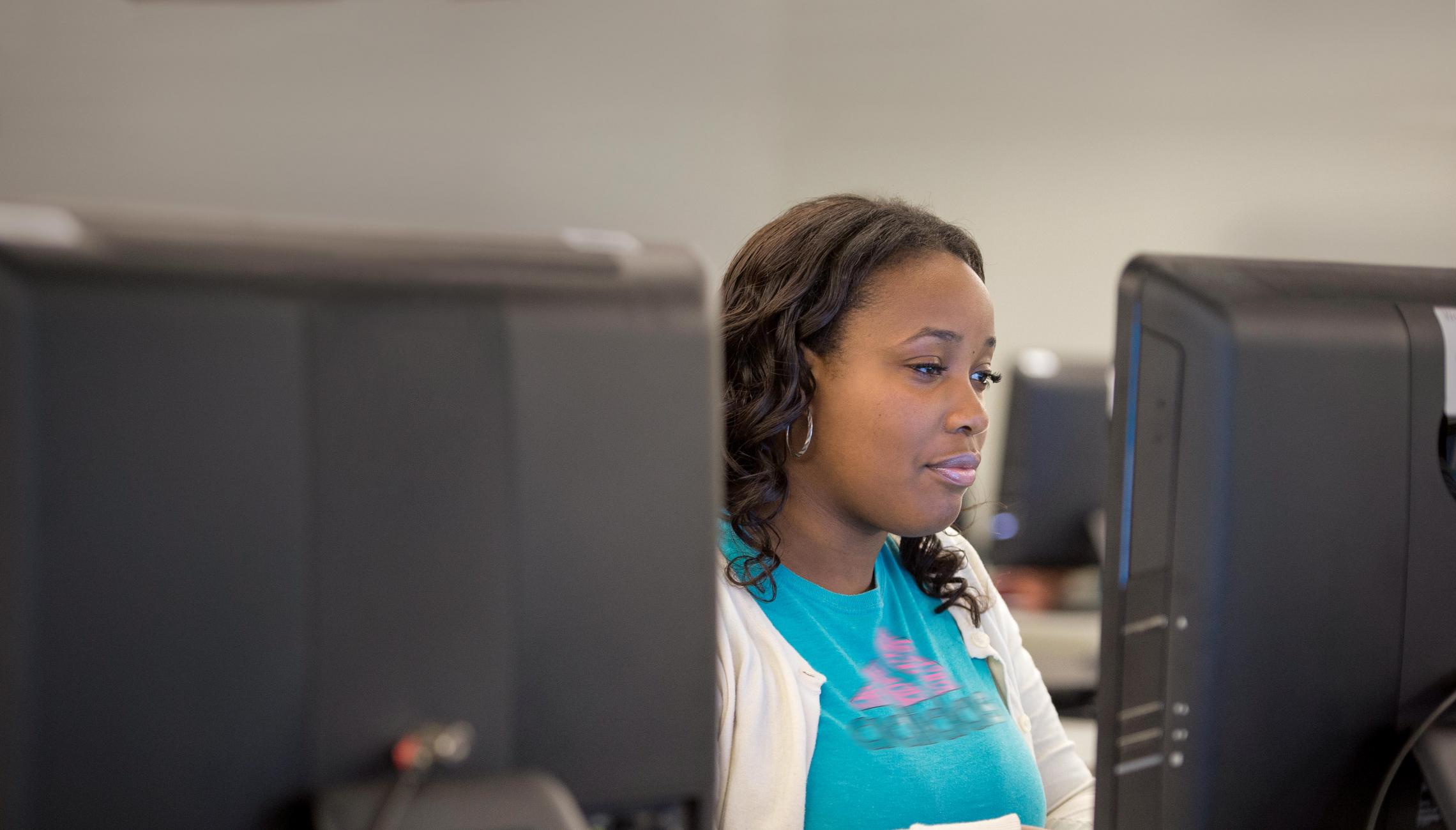Computer and Information Sciences
Computer and Information Sciences is a small but growing academic unit. CIS prides itself in its diverse student body, faculty, and staff. The program currently has about eighty CS and IT undergraduate majors, eight full-time faculty members, and one lecturer, a senior secretary, and a laboratory coordinator/system administrator. There are three smart instructional classrooms, a smart equipped student computer laboratory, and a smart equipped collaborative learning space. The program houses six research laboratories and has invested in hiring young energetic faculty rooted in computer science but with strong research interests in various interdisciplinary areas as well as cyber security.
Computing is a pervasive field and as such, research in computing often crosscuts across various different disciplines. It is this interdisciplinary nature of computing that makes it so attractive to students and researchers. Our faculty members maintain research collaborations across various disciplines within DSU and as well as other institutions such as University of Pennsylvania, Indiana University, Boston University, Emory University, and University of Nis in Nis, Serbia, as well as collaborations with industry, such as Lockheed Martin. Faculty members work on research problems in agriculture where they use bioinformatics to help in mapping the common bean genome. They also work with neuroscientists to help model and understand various neurological conditions. We have faculty working on modeling breast tissue to help in the fight against breast cancer. There is also ongoing work in medical health informatics with a laboratory currently being constructed that will utilize robots, cameras, and various other sensory devices and apply machine learning techniques to study and design home health care systems. Faculty members in CIS have developed techniques in analyzing spectroscopic data from Laser Induced Breakdown Spectroscopy (LIBS) experiments carried out in the Optics Center at DSU.
Our graduate and undergraduate students are engaged in research and research training with the faculty members and their collaborators. Our students participate in writing journal and conference papers and present at national and international conferences. Students are also encouraged and expected to apply for various internships and summer research experiences. In addition to the course work, all these activities focus on building problem solving, critical and computational thinking, communication, and lifelong learning skills. These skills are essential to a successful career in life. Our faculty members are young, energetic, approachable, and excited about working on your academics and research as well as mentoring you through to graduation. Being a small academic unit, personalized attention and mentoring through various stages of your matriculation at DSU is engrained into the very fabric of our culture.
Our students get trained on various platforms and various operating systems, all while remaining technology and vendor agnostic. We are continuously modifying and improving our programs of study to ensure that future students have the necessary skills to forge meaningful contributions to the profession and society. Students will have much opportunity to shape their future while pursuing a program of study within the CIS unit. Along with all these opportunities and a semester long research project (senior capstone), our students find employment prior to or right after graduation. Recent examples are Software Developer for U.S. Department of Justice, IT Specialists Intel and U.S. Department of Agriculture (USDA), Cyber Security Specialist at USDA, Cyber Security and Privacy Consultant for IBM, and Project Manager at Intel to name a few. Our students also have gone on to pursue graduate studies at other universities, such as North Carolina State University, Rutgers, and MIT.


